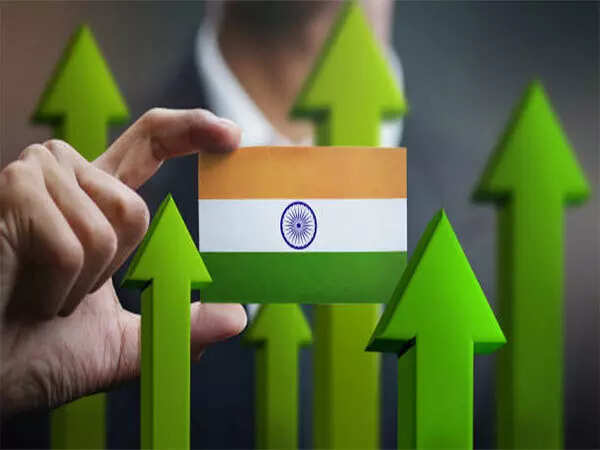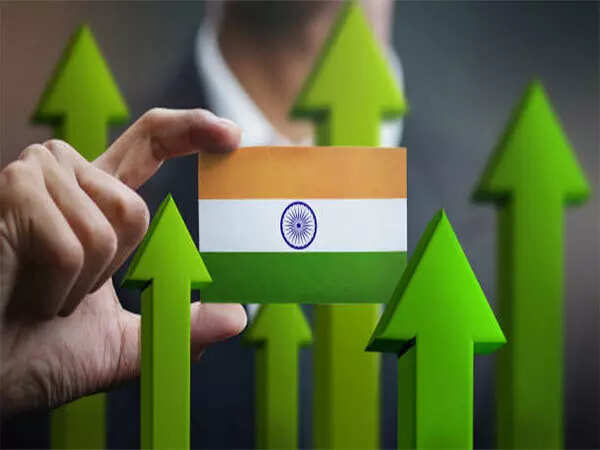India to Remain Fastest-Growing Major Economy in 2025: IMF Report
Introduction: Global Recognition for India’s Economic Momentum

India is set to retain its position as the world’s fastest-growing major economy in 2025, according to the latest World Economic Outlook released by the International Monetary Fund (IMF). With a projected GDP growth rate of 6.8%, India surpasses not only advanced economies like the U.S. and the EU, but also emerging giants such as China and Brazil.
The IMF’s optimistic outlook is rooted in a combination of structural reforms, resilient domestic demand, improved investment climate, and targeted government initiatives.
IMF Growth Projections: How India Compares
Here’s how India stacks up against other major economies for 2025, based on the IMF report:
- India: 6.8%
- China: 4.6%
- United States: 2.2%
- European Union: 1.5%
- Brazil: 2.1%
- Russia: 1.3%
India’s growth rate is more than three times the projected average for advanced economies, highlighting the country’s robust economic resilience amid global uncertainties.
Key Drivers of India’s Growth
1. Domestic Consumption
India’s large and youthful population continues to drive strong domestic consumption. With a growing middle class, rising incomes, and expanding urbanization, consumer spending remains a powerful engine of growth.
2. Infrastructure and Capital Expenditure
The government’s focus on infrastructure investment—especially in roads, railways, housing, and digital connectivity—has boosted demand in construction, steel, cement, and related sectors.
The Gati Shakti master plan and National Infrastructure Pipeline (NIP) have been instrumental in mobilizing public and private investments.
3. Digital Transformation and Tech Startups
India’s digital economy is growing rapidly, supported by the proliferation of smartphones, cheap data, and government platforms like Aadhaar and UPI. The startup ecosystem, especially in fintech, edtech, and healthtech, is attracting global capital and creating new jobs.
4. Policy Reforms
Structural reforms such as GST, Insolvency and Bankruptcy Code (IBC), labor law rationalization, and Production-Linked Incentive (PLI) schemes have improved ease of doing business and enhanced manufacturing competitiveness.
5. Resilient Banking Sector
After years of cleaning up non-performing assets (NPAs), Indian banks are now healthier, better capitalized, and more willing to lend. This has improved credit flow to businesses and consumers alike.
Challenges That Remain
Despite the positive outlook, several headwinds persist:
- High Unemployment: While growth is robust, job creation, especially in the formal sector, still lags behind.
- Inflationary Pressures: Food and fuel prices remain volatile, impacting household budgets.
- Global Risks: Geopolitical tensions, supply chain disruptions, and interest rate volatility in developed markets can affect India’s export performance.
- Income Inequality: Rapid growth has not been equally distributed, with rural and marginalized populations still facing economic insecurity.
International Confidence and Investment Inflows
Foreign investors are increasingly bullish on India. FDI inflows have remained strong, particularly in technology, renewable energy, and infrastructure sectors. Major global corporations are setting up manufacturing bases in India, encouraged by the government’s “Make in India” and “Atmanirbhar Bharat” (self-reliant India) campaigns.
Institutional investors also continue to pour money into Indian equities and bonds, reflecting global confidence in the country’s long-term economic trajectory.
Sectoral Highlights: Where Growth is Most Visible
– Manufacturing
PLI schemes are driving growth in electronics, mobile phones, semiconductors, and automobile sectors.
– Services
IT services, financial services, and tourism are key contributors to GDP growth.
– Agriculture
Despite erratic monsoons, agriculture has shown resilience due to better irrigation, crop insurance schemes, and government procurement.
– Green Economy
India’s transition to clean energy—solar, wind, and hydrogen—is drawing global attention and funding. This sector is poised for exponential growth.
Government’s Reaction to the IMF Report
Finance Minister Nirmala Sitharaman welcomed the IMF’s forecast, calling it a validation of India’s reform-centric and inclusive growth policies. The government reaffirmed its commitment to fiscal prudence, infrastructure spending, and policy continuity to sustain growth.
The Reserve Bank of India (RBI) also echoed optimism but cautioned against complacency, emphasizing the need for continued inflation management and financial stability.
Global Implications: India as a Growth Engine
India’s rise is significant in the global context, where many economies are grappling with slowing growth, high debt, and political uncertainty. As a stable democracy with a large market, India is increasingly seen as a reliable engine for global economic recovery.
Multilateral institutions, including the IMF and World Bank, have repeatedly highlighted India’s potential to lead the developing world in innovation, green growth, and digital transformation.
Conclusion: Sustaining the Momentum
India’s projected 6.8% growth in 2025 is not just a statistical milestone—it reflects the country’s transformation into a dynamic, diversified, and digitally empowered economy. However, to sustain this momentum, continuous reforms, skill development, infrastructure investments, and inclusive policies are essential.
If managed prudently, India’s growth story could serve as a blueprint for other developing economies and position the country as a global leader in the decades to come.
Visit Edge Times Homepage For More News
Read Blogs From Our Blog Website
Top 10 Movies On Jio Hotstar App

Samsung One UI 7 Update Release Date In India

Best Dog Food For Shih Tzu

Visit To Our Blog Channel To Read Interesting Blogs


Leave a Reply